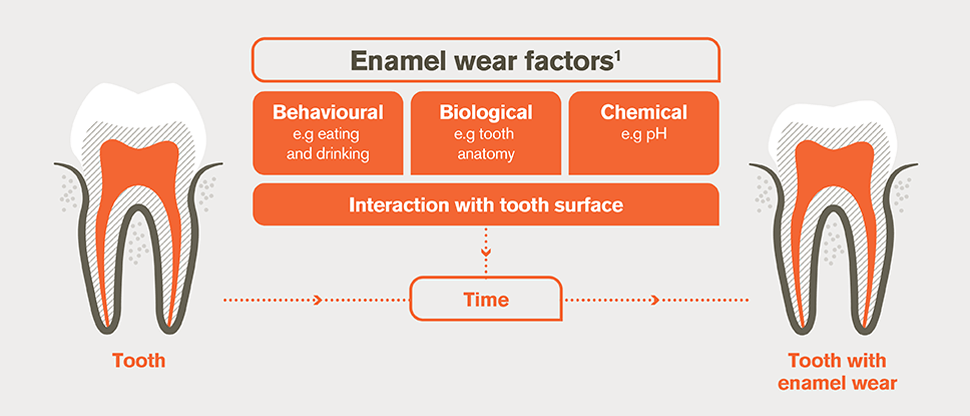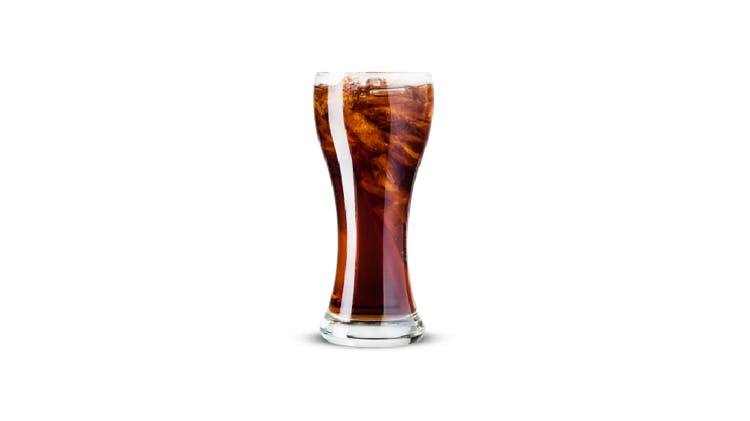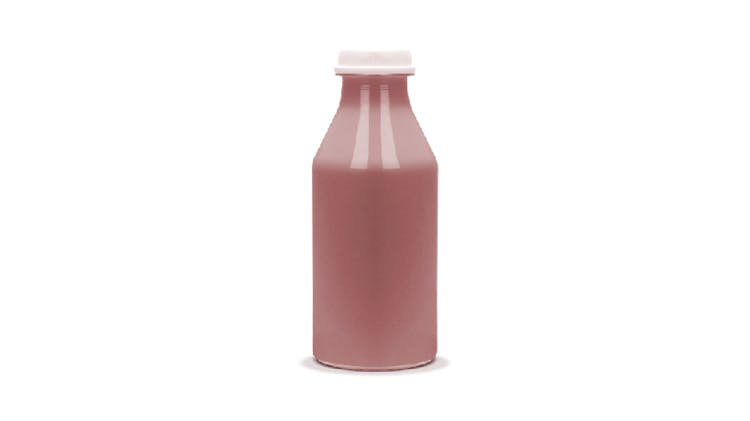Enamel wear: Causes and mechanisms

Identifying some of the causes and mechanisms of enamel wear
Although enamel is harder than any other substance in the body, over time it can gradually wear away. Here we explore the causes and mechanisms of enamel wear.
Enamel wear: demineralisation and remineralisation cycles
Enamel is equipped to respond to normal daily acid exposure. Brief periods of acid exposure trigger a demineralisation process that reduces the mineral density of the enamel surface, thereby weakening it.1,2
Due to mineral-rich saliva, the enamel undergoes a natural process of remineralisation to restore its mineral density and the enamel is strengthened again.1,2
Frequent exposure to acids, especially over long periods, can cause the remineralisation process to become overwhelmed, leaving enamel weakened. In this state, enamel is at risk of irreversible wear.1,2

Enamel wear can be a progressive state
Enamel wear is most commonly caused by a combination of chemical agents and physical wear.
Dietary acidic exposure results in the loss of calcium ions from the enamel surface layer.4,5 This softens the tooth surface, leading to an increased susceptibility to mechanical abrasion such as tooth brushing.4,5
Attrition, abrasion, erosion and abfraction can all lead to enamel wear. Factors that increase the risk of enamel wear include:4–6
- Frequent consumption of acidic foods and drinks
- Dietary habits, such as swilling drinks or snacking
- Gastric reflux or frequent vomiting
- Tooth grinding (bruxism)
- Acidic medication
Infographic adapted from Lussi et al. 20064
Enamel wear in patients is partly caused by the erosive effects of acidic food and drink
Modern diets bring increasing challenges to enamel7–9
Frequent intake of acidic or sugary foods reduces the mouth’s natural environment from a neutral pH of 7. This drop in pH becomes critical when it falls below a pH of about 5.5, leaving the teeth more at risk of enamel wear (acid erosion).7
Increasing the risk of enamel wear
Sensodyne - helping your patients manage dentine hypersensitivity from enamel wear
Impact on patient quality of life
Find out about the impact enamel wear has on patients’ daily lives.

The Sensodyne range
Find out how the Sensodyne range can help your patients with dentine hypersensitivity due to enamel wear.




